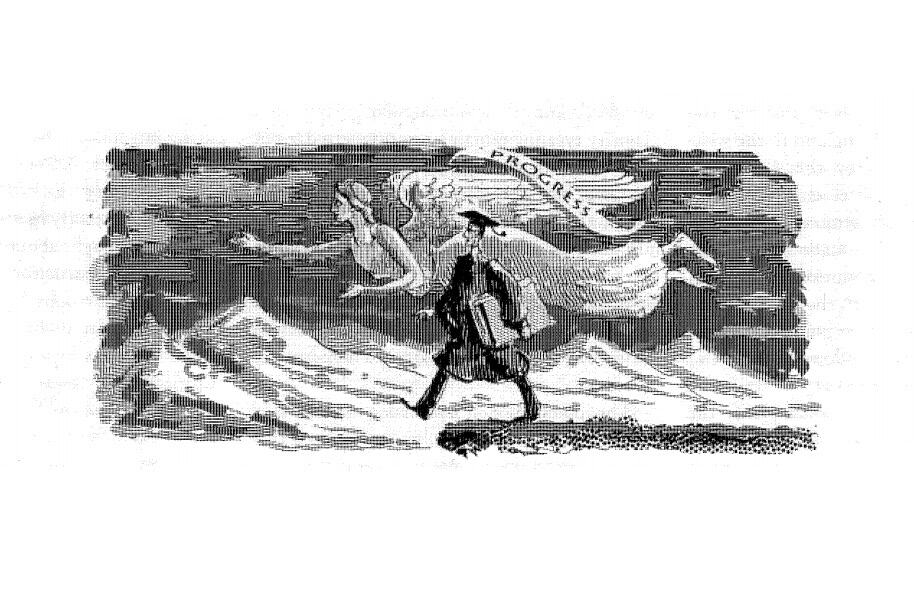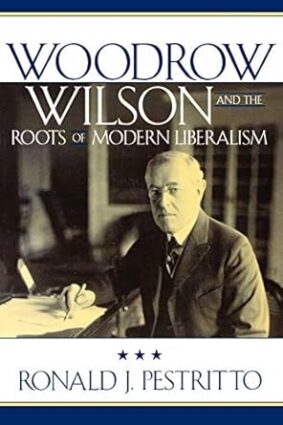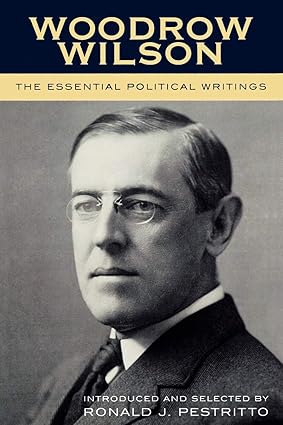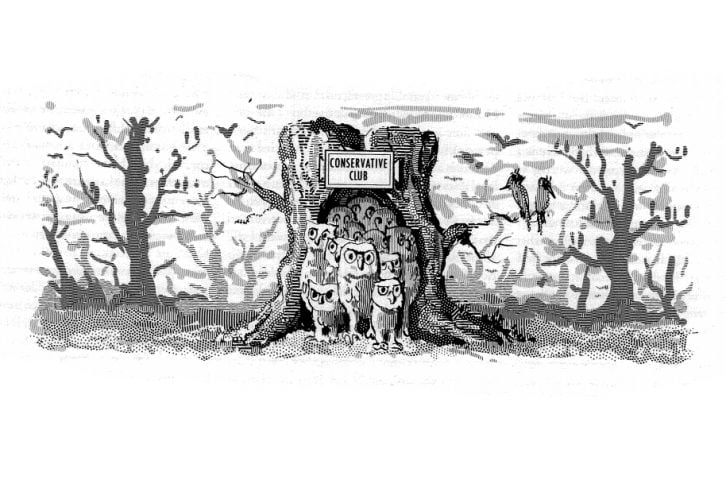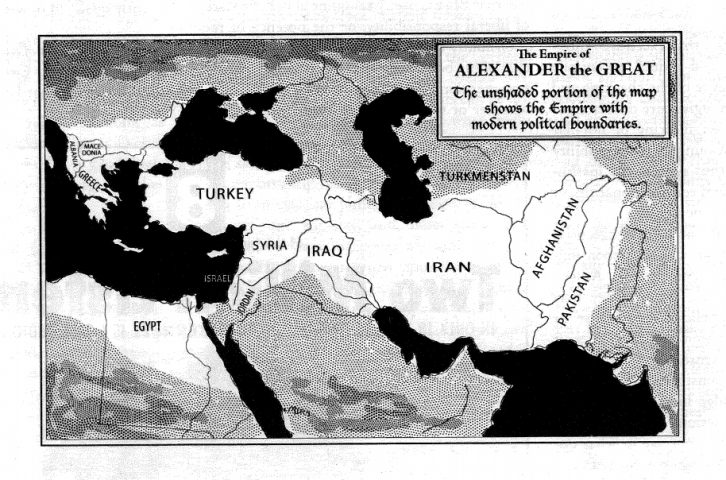Books Reviewed
Three months before the 1912 election, Theodore Roosevelt wrote a letter to Horace Plunkett in which he vehemently contradicted the opinion that there was no real difference between him and Woodrow Wilson. As T.R. saw it, Wilson, for most of his life a professor and college president, stood for the “outworn doctrines” that had caused most of the country’s political woes. Only when he ran for Governor of New Jersey two years earlier had Wilson recognized the bankruptcy of his previous positions and “instantly turned an absolute somersault.” And on many Progressive issues, Wilson remained wrongheaded.
If Roosevelt had studied Wilson’s academic career as closely as Ronald J. Pestritto has, he would never have made those assertions. The great merit of Pestritto’s Woodrow Wilson and the Roots of Modern Liberalism, and the companion volume of Wilson’s Essential Political Writings, is that they show that Wilson was steeped in the writings of the English and German Historical Schools as well as Hegelian historicism from his earliest graduate school days. Indeed, one of the major conclusions of Pestritto’s probing study is that Wilson was, at least in theory, a thoroughgoing Progressive long before T.R. was. If Wilson appeared the more conservative in 1912, it was merely a triangulating tactic designed to win the election by positioning Wilson to T.R.’s right and to William Howard Taft’s left. Thus, it is not surprising that Wilson adopted many Progressive measures after he became president. His was not a late-life conversion to the Progressive creed or—as Eldon Eisenach argues in his otherwise fine study of the Progressives—a betrayal of their cause.
Roosevelt bailed out of law school after one year and threw himself into practical politics, thus minimizing his exposure to the latest German thinking (though he did take at least one course at Columbia Law with the Hegel-infatuated John W. Burgess). Wilson obtained a law degree from the University of Virginia and a Ph.D. from the newly established Johns Hopkins University. As Pestritto notes, Hopkins was one of the first Ph.D.-granting institutions in America, and most of its faculty had earned their advanced degrees at European universities. At Hopkins, Wilson studied with two men who would later become leading Progressive intellectuals: the economist Richard T. Ely and the historian Herbert Baxter Adams. Both Ely and Adams had studied at Heidelberg under Johann K. Bluntschli, a prominent Hegelian, and were trained in the tradition of German state theory and the philosophy of history. It was Adams who first introduced Wilson to the comparative-historical study of politics, which sought to bridge national differences and promote the adoption of forward-looking foreign institutions, a method Wilson later employed in his own academic studies.
Pestritto is particularly good at tracing Wilson’s intellectual development. He begins by distinguishing between the English (and German) Historical Schools and Hegelian historicism. The English Historical School began with Edmund Burke, who, responding in horror to the French Revolution, criticized natural rights and social compact theory as too abstract and politically dangerous. By the middle of the 19th century, members of the English Historical School, e.g., Herbert Spencer and Walter Bagehot, fell under the sway of evolutionary biology. Wilson was especially taken with Bagehot’s description of the English constitution as a series of adaptations to changing circumstances. But there was one way in which the Historical School fell short: while celebrating the evolutionary progress that had already taken place, it declined to predict the future.
By contrast, the philosophy of history developed by Hegel confidently looked forward to an end state that moved beyond classical liberal political philosophy. In the Philosophy of Right, Hegel rejected the theory of the social compact, arguing that states developed only gradually, and not by deliberate creation. He further rejected the idea that there could be natural rights that transcended a particular historical setting or that the subjective claims of the individual should take precedence over the common good. Because the state is the objective embodiment of the people’s will, and necessary for their ethical development, there could be no limits on its power. Thus mechanisms such as the separation of powers, which tended to restrain government, were misguided. Instead, Hegel placed his faith in supposedly impartial bureaucrats who, because they held lifetime tenure and were chosen by competitive examinations, would possess the independence and intellectual tools needed to discern the people’s objective will.
Wilson was clearly indebted to the English Historical School, especially in his view of the American Revolution not as a radical departure from the political principles of the mother country, but as an outgrowth (in some ways an inferior outgrowth) of the English constitutional tradition. Wilson preferred the unwritten constitution of England to the written constitution adopted by the Americans because he thought the latter tended to reinforce the idea of a founding moment that had to be revered—a view that made it more difficult to propose gradual evolutionary changes. Yet despite his affinities with the English Historical School, Wilson was at bottom an idealist, argues Pestritto, who followed Hegel and Bluntschi in believing progress was toward a particular end state. Wilson could justify the radical changes he proposed, so long as they came about through gradual means, because he believed that Providence and history were leading America to this goal.
* * *
Wilson set forth his theory of government in numerous academic writings (compiled by Pestritto in his companion volume), in which his debt to foreign thinkers is clearly evident, not only in his use of sources but in the arguments themselves. Pestritto’s discussion of these philosophical themes is lucid and helpful. Here one finds traces of both Hegel and the social Darwinism that suffused so many of the writings of that period. Wilson accepts the Hegelian notion that progress occurs through struggle and conflict, and shifts seamlessly into a social Darwinian discourse about superior races. (Although Pestritto rejects the usual interpretation that Wilson was “merely” a Southern racist, preferring to attribute his racism to more heady sources, it is not clear why Wilson’s prejudice against blacks must be an either/or matter.)
Again following Hegel, Wilson rejected social compact theory as too abstract, despite the evidence that this was in fact how the American republic was established (and, we can add, the prevailing model of what constitutes legitimacy in today’s world). Nor did he show any sympathy for the idea that the so-called state of nature reflects an insight about the moral primacy of the individual or the legitimate purposes of government. For Wilson, it was not the rights-bearing individual who matters but the society as a whole. Accordingly, he rejected the founders’ idea that free government must seek to enlist the interests and passions, as well as the opinions, of each individual. For Wilson, the appeal to self-interest clearly marked a more primitive era, which history had left behind. Disinterestedness, directed toward the common good, was now the higher moral calling, and individual rights should no longer be permitted to serve as a barrier to the achievement of the ethical state. This was true especially for property rights, which Wilson regarded as historically contingent. He dismissed the founders’ claim that in a popular government, majority tyranny remains a permanent danger. History, acting through the great cataclysm of the Civil War, had brought forth a single nation out of a divided confederation and united it in one will. (Pestritto shrewdly wonders why two parties should remain if there is one will.) In Wilson’s reading, the Civil War did not vindicate the principles of the founding but moved decisively beyond them, to attain a higher unity of will.
The job of the political leader, assisted by a disinterested bureaucracy, was to discern this will and move the people to accept it. In this task, rhetoric is crucial, and Pestritto follows the work of Jeffrey Tulis, James Ceaser, et al., in underlining Wilson’s role in forging the modern “rhetorical presidency.” Combining the extra-constitutional roles of party manager and director of public opinion, the “leader” (one of Wilson’s most important essays, included in Essential Political Writings, is “Leaders of Men”) appeals directly to the people through visionary speeches, rather than working with the coordinate branches of government as set forth in the Constitution. Here too Wilson dismissed the founders’ fears that a skillful demagogue might inflame the people’s passions, inciting them to tyrannize over the minority for his own selfish ends. History had rendered majority tyranny obsolete and ushered in the new post-constitutional administrative state. The historical-comparative method of the new political science could do much to assist progressive leaders who sought to apply the innovations of more advanced European states to post-Civil War America (even if their constitutional principles were different), and Wilson, as president of the newly formed American Political Science Association, heartily endorsed this project.
In true Hegelian fashion, Wilson divided American history into separate epochs, each of which marked an advance upon the previous era. He regarded Madison and Hamilton as essentially British (though they failed to recognize that the British constitution was evolving, and clung instead to permanent principles). More surprisingly, in his essay “A Calendar of Great Americans” Wilson declared Jefferson “not a thorough American because of the strain of French philosophy that permeated and weakened all his thought.” Overall, Wilson adopted the moderate Progressive line that the founders were good for their time, but that their primitive individualism was now completely outdated. A decidedly odd Democrat, he criticized Andrew Jackson (as he had Jefferson) for supporting decentralization and strict construction. Moreover, he blamed Jackson for having introduced the spoils system, which rewarded cronies and allowed “special interests” to corrupt politics. Wilson judged the Civil War to be necessary in a world-historical sense, because it brought about national unity. In his reading, Reconstruction (once the North removed federal troops from the South and allowed the superior white race to regain control) moved America forward, beyond narrow constitutionalism, toward a growing realization that mere forms and formalities should not impede the will of the nation.
In his academic writings, Wilson toyed with several ways to bring about desired evolutionary changes. His best-known early effort appeared in his 1885 study, Congressional Government. The gist of his argument was that Congress could not govern effectively though the secretive committee system and should instead transfer power to a Cabinet drawn from the majority party in Congress, even if it was different from that of the president. Thus the cabinet would become the real center of power, with each cabinet officer assuming responsibility for the development of policy in his particular area, while the presidency shrank to little more than a non-partisan figurehead. Wilson’s goal was to nudge America toward the British model of parliamentary democracy, which he regarded as superior because it separated politics (or deliberation) from administration (or actual policy-making). The scheme was stillborn, however, because it ran afoul of Article I, section 6, clause 2 of the Constitution, which barred members of one branch from holding office in another.
* * *
Undaunted, Wilson pursued his goal of overcoming the separation of powers by another route. Inspired by the second Grover Cleveland Administration, the growing importance of foreign policy after the Spanish-American War, and T.R.’s energetic presidency, Wilson turned to the presidency as the new engine of progress. As Wilson explained in his 1908 study of the executive, it was the president’s power as molder of public opinion and party leader—not his powers and duties outlined in the Constitution—that provided the means for him to become an effective instrument of change.
Pestritto’s chapter on “The Science of Administration” is essential to understanding Wilson’s overall goal of replacing the constitutional principle of separation of powers with the separation of politics and administration. Whereas the separation of powers tended to erect barriers to government action, the separation of politics from administration has the opposite effect, and with good reason. Since (in theory) government now acts on behalf of the united will of the people, there should be no limits on its power. The task of politics, and of the leader especially, is to help shape the public opinion that steers the government. But public opinion should not influence actual policy-making, which is to be carried out by an impartial bureaucracy, obtained by civil service reform and insulated from day-to-day political pressures. Within the administrative agencies, the separation of powers mandated by the Constitution effectively dissolves, as these agencies make, execute, and judge the policies that reflect the people’s objective will. Pestritto rightly wonders how this state of affairs can be reconciled with the Constitution or with a democratic republic, inasmuch as the bureaucrats who make public policy are, by design, unaccountable to the public. Although he gives a fair hearing to Herbert Storing, the most thoughtful defender of the modern administrative state, he remains unpersuaded that Wilson’s progressive project can be reconciled with the intentions of the framers and the requirements of republican self-government.
Having demolished the position that Woodrow Wilson was a latecomer to the Progressive program, one wishes that Pestritto had extended his analysis to the presidential years to see how Wilson’s academic theories fared when confronted with political reality. Although the book touches briefly on the 1912 election and beyond in a concluding chapter, this question goes largely unexplored. Finally, one wishes that Pestritto had given his political imagination a bit more scope and had tried to envision what solutions to the novel problems of industrialization, urbanization, and mass immigration, as well as the old problems of racial injustice and growing economic inequality, the founders might have devised. Majority faction remains a permanent danger in a democratic republic, especially when the impediments to demagoguery are removed by the rhetorical presidency. But that does not mean that minority factions, especially wealthy or influential minorities, wielding power beyond their numbers, cannot also threaten the founders’ achievement. Still, in the task he has set himself, Pestritto has succeeded splendidly and should be congratulated for uncovering the harm that “mere” academics can do.
